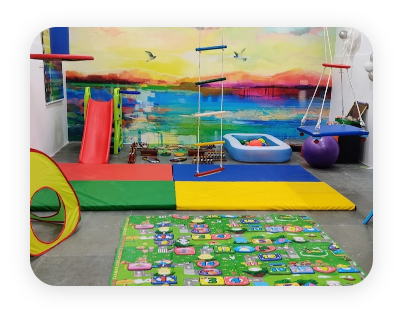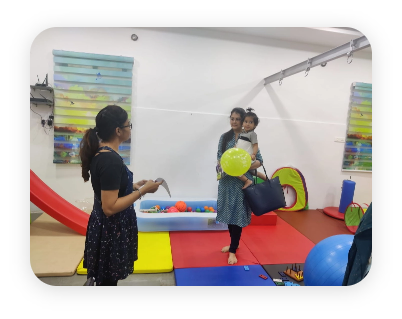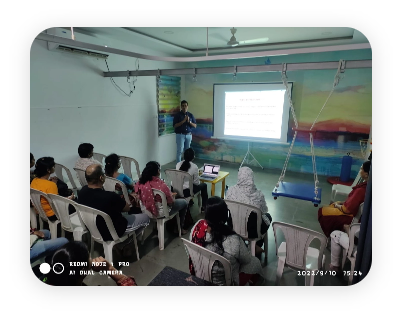SCIENCE-BASED ACTIVITIES
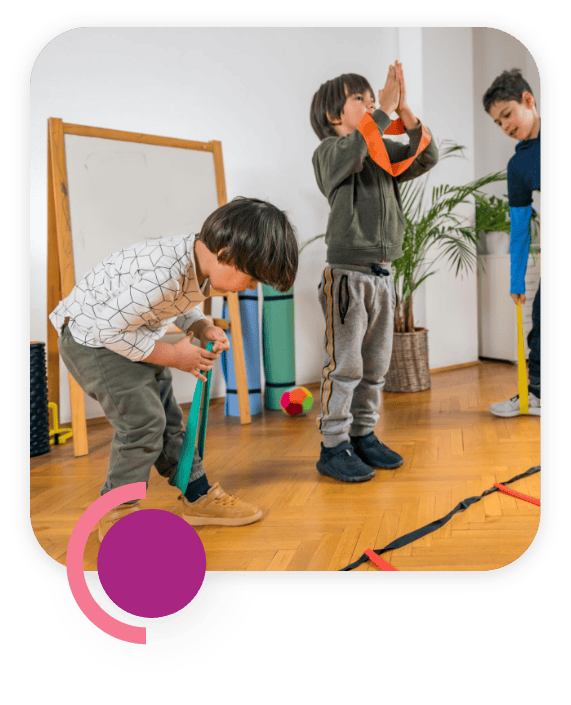

Does your child require
scientific based activities

Skill Development on Focus:
These activities aim to enhance the specific social, behavioral, and communication skills.

Research-Proven Strategies:
They employ evidence-based strategies, promoting effectiveness and quantifiable progress.

Systematic and Customized:
Activities are personalized according to your child's strength and requirement.

Comprehensive Development:
They enable overall development, promoting confidence, autonomy, and flexibility.
What we do in scientific based activities?

Develop Exploration & Critical Thinking:
Encourage experimentation and observation to develop curiosity and problem-solving.

Facilitate Hands-on Learning:
Encourage curiosity and learning through interactive, real-life uses of science.

Develop Analytical Skills:
Train children to gather data, analyze, and make conclusions

Develop Teamwork & Communication:
Develop children's collaboration and sharing ideas among children while doing scientific activities.

Advantages of scientific based activities
Key Benefits of Engaging in Scientific-Based Activities
Boosts Engagement
Makes learning interactive and enjoyable
Enhances Understanding
Deepens comprehension through practical application.
Develops Critical Skills
Fosters problem-solving, analysis, and creativity.
Encourages Collaboration
Promotes teamwork and effective communication.
Advantages of scientific based activities
Key Benefits of Engaging in Scientific-Based Activities
Boosts Engagement
Makes learning interactive and enjoyable.
Enhances Understanding
Deepens comprehension through practical application.
Develops Critical Skills
Fosters problem-solving, analysis, and creativity.
Encourages Collaboration
Promotes teamwork and effective communication.

Scientific based activities procedure
Discovering science through interactive and collaborative exploration.

Introduce Concepts
Explain the topic and its purpose clearly.

Hands-on Exploration
Conduct experiments or activities to apply concepts.

Review and Reflect
Analyze results and discuss findings.
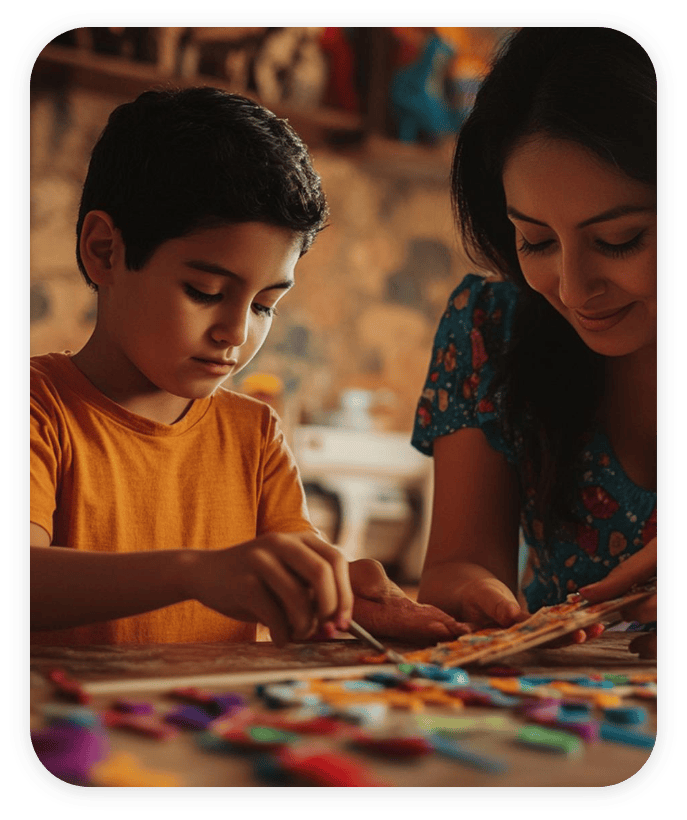

How can progress be measured & tracked?

Set Clear Goals
Establish specific, measurable objectives for activities.

Use Observational Checklists
Record behaviors and skills demonstrated during sessions.

Conduct Regular Assessments
Evaluate progress through quizzes or practical tests.

Collect Feedback
Gather insights from participants and caregivers to adjust approaches.

How can progress be measured & tracked?

Set Clear Goals
Establish specific, measurable objectives for activities.

Use Observational Checklists
Record behaviors and skills demonstrated during sessions.

Conduct Regular Assessments
Evaluate progress through quizzes or practical tests.

Collect Feedback
Gather insights from participants and caregivers to adjust approaches.
Frequently asked questions
Any child, particularly those experiencing delays in growth or struggling with learning.
We assess each child's needs and goals, then select activities that enhance their motor skills, thinking, and sensory growth.
Children learn valuable life skills such as problem-solving, teamwork, communication, and thinking differently all through engaging, hands-on activity.
Yes. When parents become part of it, it actually helps the child transfer what they learned to home life as well. We work collaboratively to help your child every step of the way.
Certificate &
Verification









